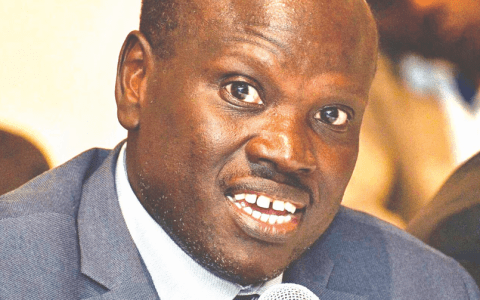Blow as US firm exits NSE, citing liquidity challenges

BlackRock, an American multinational investment company is liquidating its iShares exchange-traded funds (ETFs) worth $400 million (Sh51.4 billion) in select emerging and frontier markets including Kenya and Nigeria, citing liquidity challenges and difficulty in repatriating funds in dollars.
The firm, one of the world’s top asset managers, which has an interest in various sectors globally is said to have invested an estimated $5.2 million (Sh669.1 million) across Safaricom, Equity Group and KCB Group. An ETF is a type of investment fund that tracks an index, commodity, bonds, or a basket of assets like an index fund. Unlike mutual funds, ETF trades like a common stock on a stock exchange, and experience price changes throughout the day as they are bought and sold.
The fund was aimed at providing investors with access to stocks in selected African, Asian and Eastern European markets, including Kenya, Morocco, Nigeria, Bahrain Bangladesh, Colombia, Estonia, Jordan, Kazakhstan, Pakistan, Philippines, Romania, Sri Lanka and Vietnam.
Blackrock said the decision to close the iShares Frontier ETF, which also affects Nigeria’s bourse, was influenced by ongoing liquidity challenges in frontier markets.
These challenges include difficulties in converting currencies and moving money out of these markets, which affects the fund’s ability to operate efficiently.
By liquidating the fund, BlackRock said it aims to protect the interests of the fund and its shareholders, ensuring that they can manage their investments effectively, despite these market conditions.
Liquidate the fund
“Directors of the company approved a proposal to liquidate the fund. In light of persistent liquidity challenges in certain frontier markets, including among other things, delays in repatriation of local currency, the board determined that it is in the best interest of the fund to liquidate iShares,” it said in a statement.
The fund is scheduled to undergo a prolonged liquidation phase, culminating in its final trading day on March 31, 2025. Throughout this time, iShares plans to divest from all market positions and maintain the proceeds as cash or cash-equivalent assets.
“After market close no earlier than August 12, 2024, but on a date as soon as practicable, the fund will cease trading and the creation and redemption of creation units,” the statement noted.
This is happening as Central Bank of Kenya (CBK) Governor Kamau Thugge disclosed during a recent meeting with bankers that BlackRock, managing a staggering $10 trillion in assets, had singled out Kenya among ten economies for investment.
This announcement had coincided with sustained gains for NSE investors and a remarkable appreciation of the shilling against the US dollar since the onset of 2024, following the issuance of a $1.5 billion (Sh198.0 billion) Eurobond and the oversubscription of the year’s inaugural infrastructure bond.
Kenya’s equity market has continued to show stability recently, with a flat performance over the last week but a notable gain of 3.4 per cent in the utilities sector during that time. Over the past year, the market has seen a 10 per cent increase, and earnings are expected to grow by 14 per cent annually. Despite this positive outlook, BlackRock’s decision could be influenced by broader concerns beyond short-term market performance, such as long-term liquidity issues and currency conversion challenges that affect the ease of repatriating funds.
These systemic issues can overshadow short-term gains and influence decisions by large asset managers like BlackRock.
Experts say the Kenyan stock market has faced challenges amid a liquidity crisis fuelled by corruption and tax mismanagement, leading to government reliance on loans. These issues complicate fund repatriation for investors and likely influenced BlackRock’s ETF portfolio decision in Kenya.
Foreign investors
Of late, foreign investors have become less interested in African stocks due to subpar returns and currency issues in major markets like Egypt, Nigeria, and Kenya.
While BlackRock’s colossal size and global reach grant it significant influence, its investment decisions can sway markets despite not having direct control over global affairs.
BlackRock’s investment approach, as stated on its website, revolves around managing funds for institutional clients such as corporate or public pension plans and offering investment solutions to aid both professional and personal investors in long-term wealth accumulation.
“We manage money for institutional clients like corporate or public pension plans, and provide investment solutions that help both professional and personal investors build long-term wealth,” says Blackrock.



